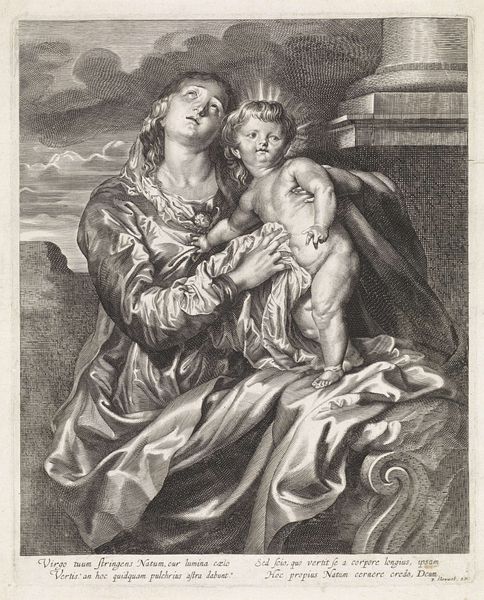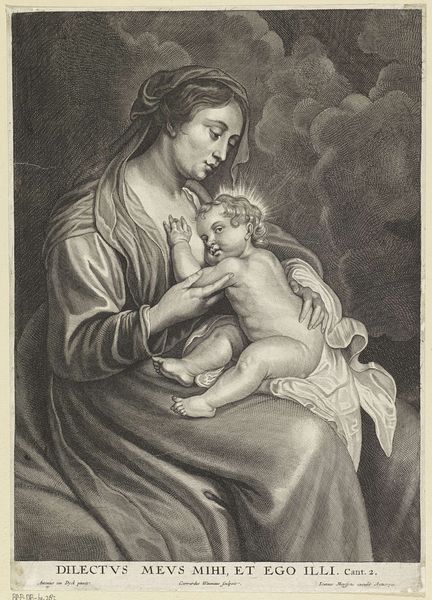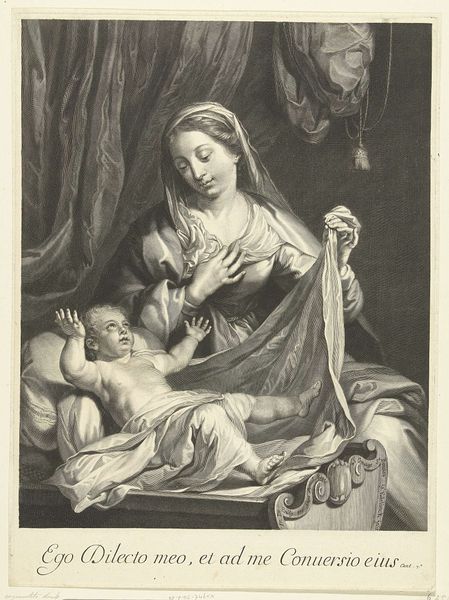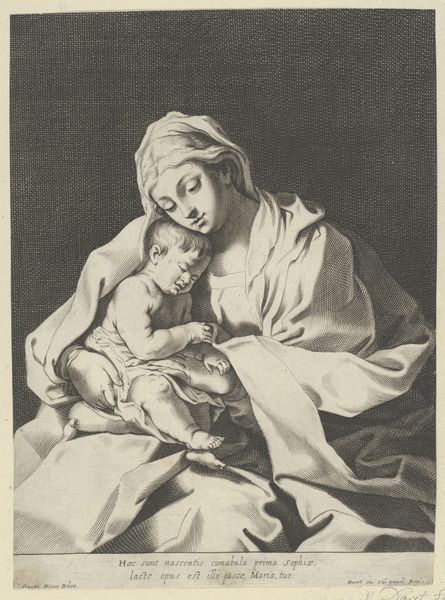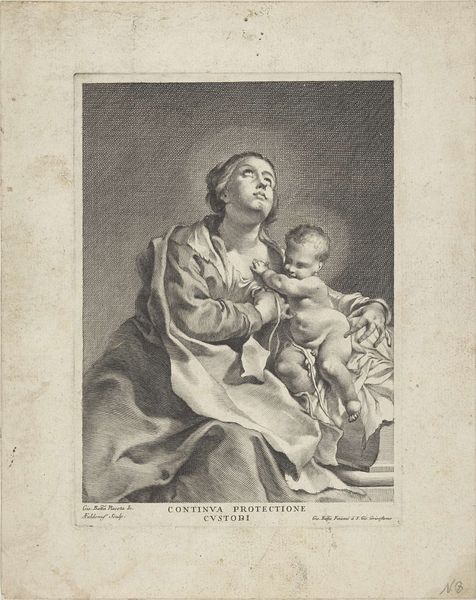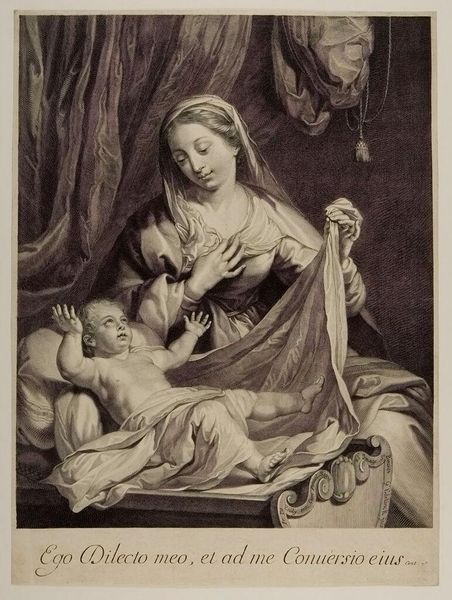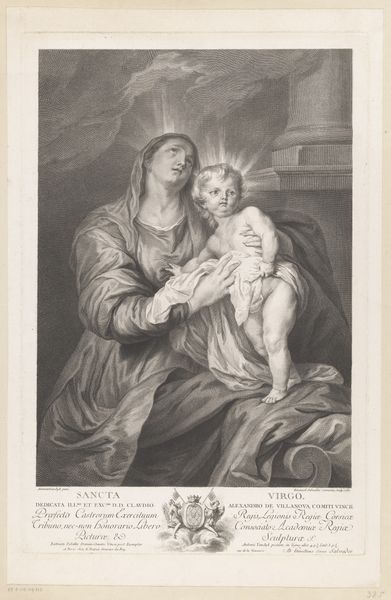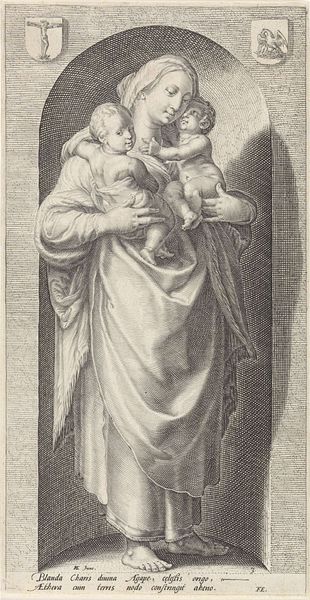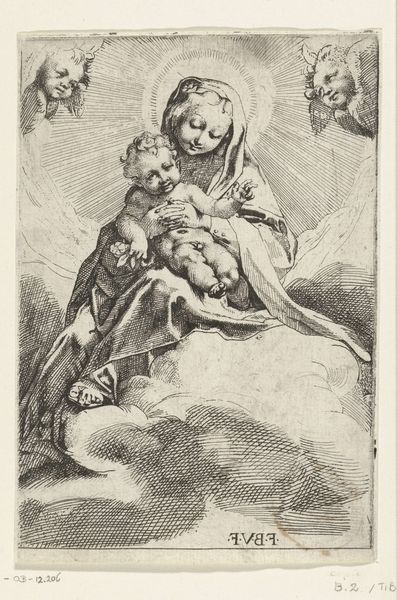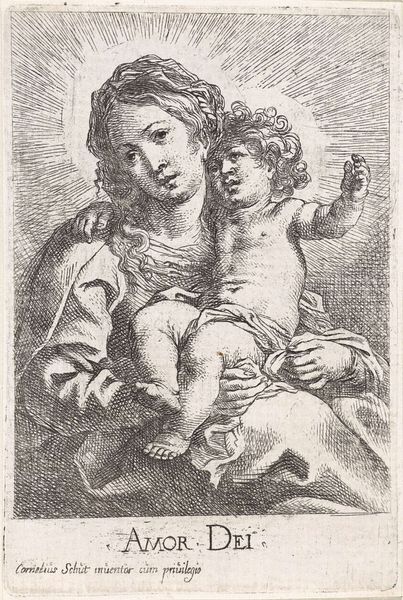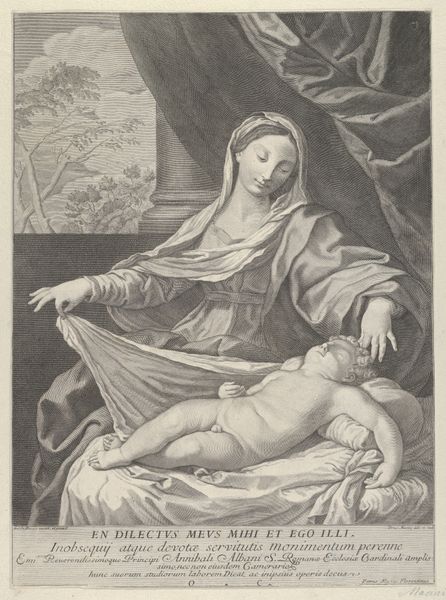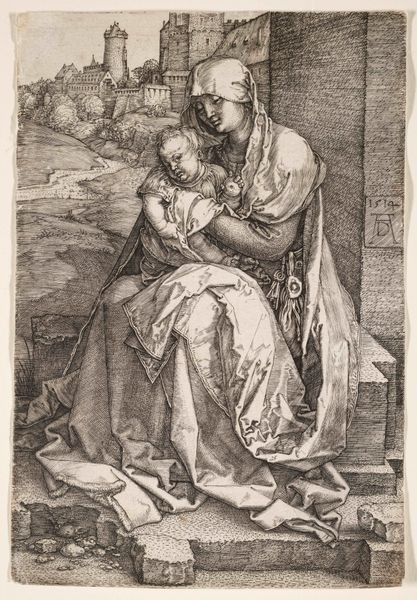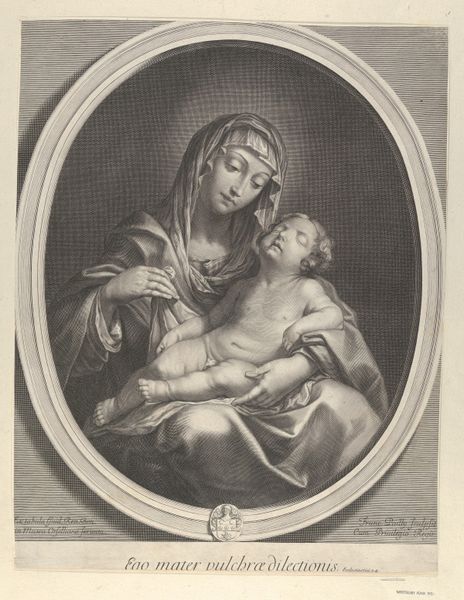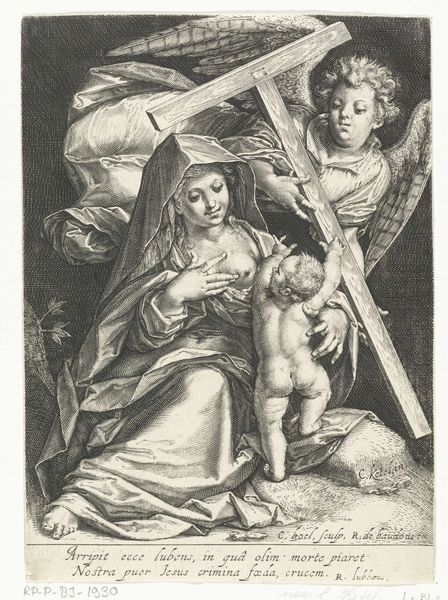
print, engraving
#
portrait
#
baroque
# print
#
figuration
#
portrait drawing
#
history-painting
#
engraving
Dimensions: height 277 mm, width 223 mm
Copyright: Rijks Museum: Open Domain
Editor: Here we have Paulus Pontius’s “Maria met het Christuskind,” or “Mary with the Christ Child,” an engraving from the mid-17th century. It has a somber, almost devotional mood to it. How do you interpret this work within its historical context? Curator: This print exemplifies the Baroque era's visual strategies of the Counter-Reformation. Consider how it actively fosters a renewed spirituality. The gaze of Mary directs our own upward, creating a palpable sense of divine connection. Can you see how the artist utilizes these visual cues to encourage viewers to engage emotionally and spiritually? Editor: I see the upward gaze, but how does that tie into larger power dynamics? Curator: The focus isn't solely on religious piety. The piece also implicitly reinforces the role of the Church in mediating the relationship between the individual and the divine. Mary's pose, holding Christ, positions her as the ultimate intercessor, a figure of both power and submissive virtue in a patriarchal structure. How does this impact our contemporary reading? Editor: I guess I hadn’t thought about it in terms of power structures. So, even a seemingly devotional image reflects the social and political landscape of its time? Curator: Absolutely. This print is a powerful piece of cultural currency, reinforcing societal norms and spiritual beliefs. Understanding its original context, as well as its reception then and now, enables us to unpack these layers of meaning and influence. Do you think its visual language would resonate similarly today? Editor: It gives me a lot to consider when viewing art from this period. I will definitely approach Baroque art with fresh eyes moving forward! Curator: Indeed! This kind of analysis encourages us to consider art as not existing within a vacuum but within intricate webs of history and societal power.
Comments
No comments
Be the first to comment and join the conversation on the ultimate creative platform.
